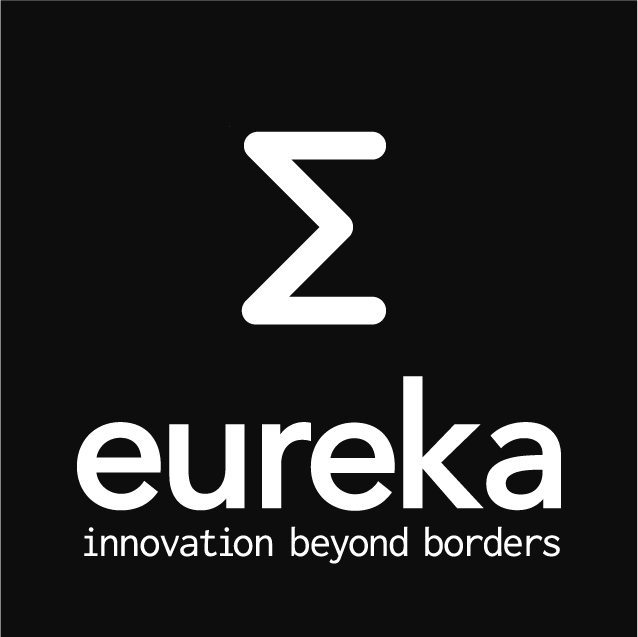Board members (Core Group) and Public Funding Bodies do not fund CELTIC-NEXT. Therefore, CELTIC-NEXT is solely financed through participant fees from running CELTIC-NEXT projects. These fees are necessary to ensure the operational efficiency of the CELTIC-NEXT office, which provides a wide range of services, both visible and invisible to participants.
The CELTIC-NEXT Office is responsible for the day-to-day management of the CELTIC-NEXT programme. It organises the calls for project proposals, the project evaluation, the labelling, and the project reviews. It also provides professional guidance, coaching and mentoring to proposers, projects, and interested communities and organises regular CELTIC-NEXT events and Proposers Brokerage Days. The Office provides a flexible project coaching process where participants can adapt their project plan, consortium and other aspects agilely, using CELTIC-NEXT’s Project Change Requests mechanism. This enables consortia to adapt to internal and external circumstances.
The CELTIC-NEXT Office delivers the following services:
CELTIC-NEXT’s project calls:
The operation of a CELTIC NEXT call for bottom-up project proposals involves a number of specific actions:
The first action is to prepare for the call – this means preparing the support for the management of the calls and proposals in terms of human resources and system tools, from application preparation to evaluation and labelling.
Once the systems are prepared, the physical events for the call must be orchestrated:
- Launch event – often online, sometimes in person
- Brokerage event – as much as possible in person, online under certain circumstances (like COVID times)
The office staff facilitate these events by offering pitching preparation support before and running Consortium Building Sessions in the days following the brokerage and matchmaking.
The office must also allocate a set of qualified experts for the technical assessment of proposals. Should a proposal be labelled, they can expect help from the office for the negotiation with the different Public Authorities and coordination of preparation activities up to the project launch.
CELTIC-NEXT’s Flagships
These involve a similar process to the Project construction, but it is initiated in response to the convergence of industry demands and national interests.
CELTIC-NEXT’s Promotion Events
CELTIC-NEXT showcase events are planned, wherever possible, to maximise the exposure and value to the projects and the authorities. These are usually planned in coordination with other major events to ensure good audiences and to control costs.
CELTIC-NEXT’s Support to Projects:
CELTIC-NEXT oversees the running projects to ensure they are working to plan and can deliver the expected results. This is achieved by frequent interactions between the project officer and the project leader and several formal reviews (mid-term, final) during the project life.
Typically, a CELTIC-NEXT project can expect:
- Comprehensive support for reporting, dissemination and collaborative working through the CELTIC-NEXT Support toolset
- Assistance, coaching and monitoring support from the Project officer
- Advice and guidance from experts and project officers during the project’s lifecycle (on demand) and in particular at review times (by default)
- Simple processes for Project Change Request management, providing flexibility and resiliency to projects when plans need to change
CELTIC-NEXT also supports the project’s Dissemination activities by inviting them to present at CELTIC-NEXT’s Events, nominating speakers, and participating in international events like EUCNC, EGIS, and highlighting the projects’ major achievements via CELTIC-NEXT’s media channels: Linkedin, Newsletter, CELTIC News, and a mailing list reaching over 3200 sector professionals.
Below, we outline the key procedures regarding the payment of this fee, the invoicing schedule, and relevant scenarios to guide participants in managing their contributions effectively.
OUTLINE
Check out the Proposal Management Guide PDF for practical tips on preparing a CELTIC-NEXT Proposal, as well as tools to support participants in crafting high-quality proposals.
Payment Terms
The CELTIC-NEXT contribution fee is set at 1.5% of the yearly budget of the assigned project work of the participant. The obligation to pay this fee begins when a project partner becomes active in the project, regardless of public funding availability.
- Payment Due: Payments must be made within 30 days of receiving the invoice.
- Objections: Any objections to an invoice should be raised within 14 days of receipt.
Mandatory Participation
The fee is mandatory for all project participants. Participants must confirm acceptance of the CELTIC-NEXT fee rules during the project proposal submission. This is done through a Confirmation Letter and Declaration of Acceptance (CLD). Without this confirmation, a CELTIC-NEXT label will not be assigned to the project.
Invoicing Schedule
CELTIC-NEXT defines two main invoicing dates each year: 1 June and 1 December. The CELTIC Office issues invoices in two six-monthly instalments, corresponding to the following periods:
- First Invoicing Period: January to June
- Second Invoicing Period: July to December
Invoicing Calculation
Each six-monthly instalment is calculated as 50% of the total yearly contribution based on the participant’s planned project budget.
The six-monthly instalment is calculated as follows:
Six-monthly instalment = 50 % of (total planned yearly budget of the assigned project work of the participant x CELTIC-NEXT contribution fee)
- The first instalment is issued by 1 June for projects that have started before that date. The fee is based on the planned effort for the full year, regardless of actual work completed.
- The second instalment is issued by 1 December for all projects. This invoice reflects the other 50% of the yearly contribution.
Important Considerations
- Project Start Date: Projects that begin after 31 May will receive an invoice of 100% of the annual fee, invoiced in the second instalment.
- Project Change Requests (PCRs): Any changes to the planned budget must be communicated through a PCR. A PCR ensures that the invoiced amounts are adjusted according to any significant modifications in the project’s timeline or budget.
Please note: Invoices are based on planned figures and not on the actual work completed. Changes must be announced via a PCR before the invoicing date to avoid recalculations.
For more information, please refer to the official documentation or contact the CELTIC Office.



